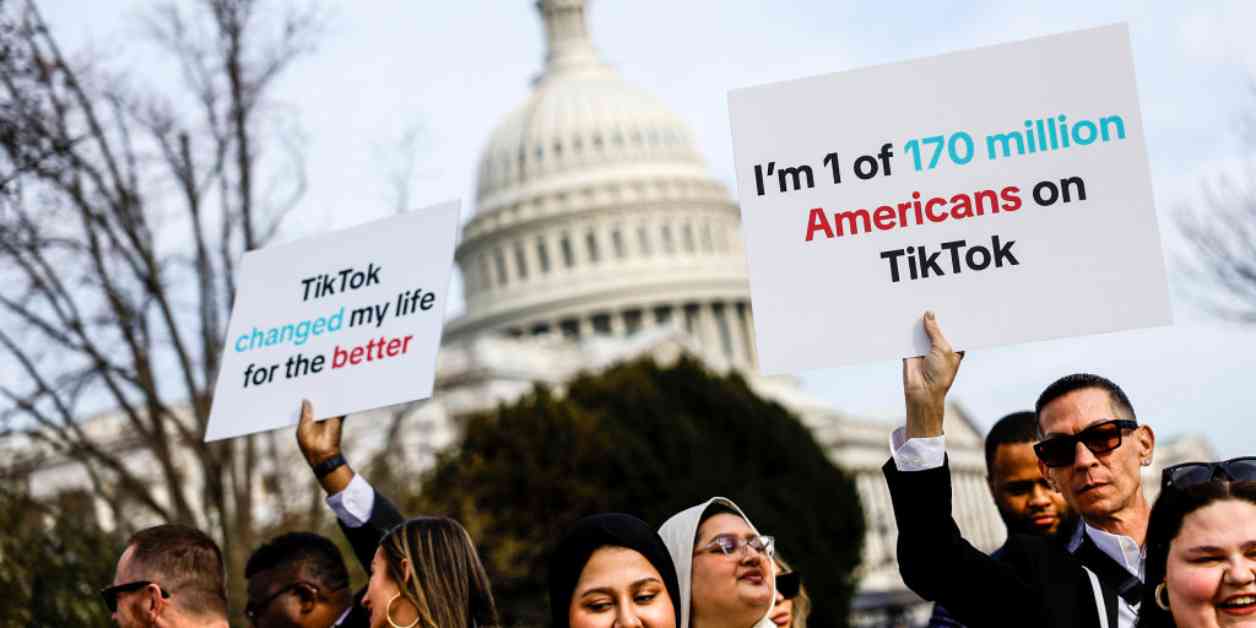Bipartisan Efforts to Ban TikTok Lead to Political Fallout
WASHINGTON — In a surprising turn of events, Democratic and Republican lawmakers came together in the midst of a heated presidential campaign last year to pass a bill that could potentially result in the prohibition of the widely-used social media platform TikTok in the United States. President Joe Biden wasted no time in signing the bill into law, met with little objection from either side of the political spectrum.
TikTok Ban Postponed
As the deadline for the TikTok ban looms on the horizon, politicians are distancing themselves from the once-celebrated bipartisan achievement. White House press secretary Karine Jean-Pierre announced on Friday that the responsibility of implementing the TikTok law will be deferred to the incoming administration of President-elect Donald Trump, set to take office on Monday. Despite the impending ban scheduled for Sunday, key congressional figures who championed the legislation are now advocating for a delay to allow TikTok’s Chinese parent company, ByteDance, more time to sell the app to an American buyer.
The Supreme Court’s Decision
The situation escalated on Friday morning when the Supreme Court upheld the law passed by Congress last April, dealing a significant blow to TikTok. Senate Minority Leader Chuck Schumer emphasized the importance of finding an American buyer for TikTok to liberate the app from any potential influence of the Chinese Communist Party while preserving the jobs of millions of creators who rely on the platform for their livelihoods.
Lawmakers’ Backpedaling on TikTok Ban
The backpedaling of elected officials in Washington on the issue of TikTok highlights the evolving political landscape. The Protecting Americans from Foreign Adversary Controlled Applications Act, part of a broader foreign aid package, mandates the removal of TikTok from U.S. app stores unless ByteDance sells the platform to an American entity. Law enforcement officials and lawmakers who supported the legislation argue that TikTok poses a national security threat, potentially allowing the Chinese Communist Party to spy on American users and manipulate content algorithms.
Senator Mark Warner emphasized the urgency of removing Chinese control over TikTok to mitigate national security risks, while Senator Richard Blumenthal believes that TikTok should be sold to continue existing in the U.S. The rift between lawmakers who support the ban and those advocating for a sale underscores the complexities of the situation.
Expert Insights and Observations
In a statement to NBC News, Rep. Raja Krishnamoorthi stressed the need for ByteDance to engage with potential buyers to avert the ban, highlighting the power struggle between U.S. policymakers and the social media giant. The growing uncertainty surrounding TikTok’s future has left millions of users and creators in limbo, with their fate hanging in the balance of political negotiations and corporate maneuvers.
The conflicting viewpoints and shifting alliances in the TikTok saga reflect the broader tensions between national security concerns and economic interests, raising critical questions about the role of foreign-owned tech platforms in shaping American social and political landscapes. As the deadline for the ban approaches, the fate of TikTok remains uncertain, leaving both policymakers and users on edge about what the future holds for this popular social media platform.
















